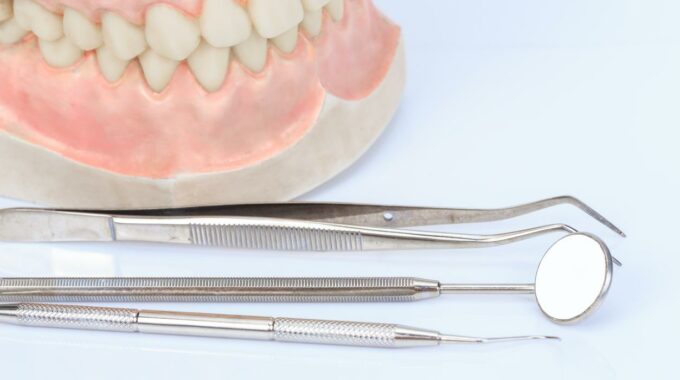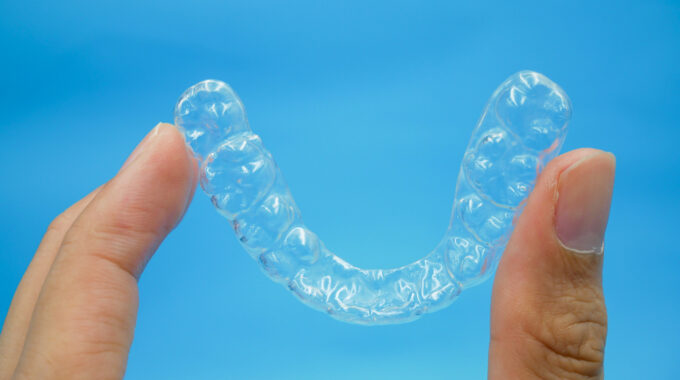Are you or someone you know considering dentures? Dentures can be a great way to…

Combating February Dry Mouth: Tips for Hydration and Relief
As winter persists into February, many individuals find themselves battling an unexpected foe – dry mouth. While commonly associated with warmer months, the dry air, indoor heating, and seasonal illnesses of winter can contribute to this uncomfortable condition. In this article, we’ll explore the causes of dry mouth in February and provide practical tips to alleviate symptoms and promote oral health during this chilly month.
Winter Dehydration
Despite the cold weather, dehydration remains a prevalent issue in winter. The combination of low humidity outdoors and heated indoor environments can lead to increased fluid loss. Dehydration is a significant contributor to dry mouth, as the body struggles to produce sufficient saliva to keep the mouth moist
Indoor Heating and Dry Air
The use of indoor heating systems is essential for staying warm in winter, but it often results in a side effect – dry air. Heating systems can reduce humidity levels indoors, contributing to dry skin, irritated nasal passages, and, of course, dry mouth. This becomes particularly pronounced during extended periods spent indoors.
Medications and Winter Illnesses
Many individuals take medications for various conditions, and some of these medications have the side effect of causing dry mouth. Additionally, the winter season brings with it an increased risk of illnesses, and certain medications used to treat these illnesses may exacerbate dry mouth symptoms.
Mouth Breathing
Breathing through the mouth, which can be more common in cold weather, contributes to dry mouth. Mouth breathing bypasses the natural humidifying and moisturizing effects of nasal breathing, leading to increased dryness in the oral cavity.
Tips for Combating Dry Mouth in February
Stay Hydrated
Combat winter dehydration by increasing your fluid intake. Drink plenty of water throughout the day to keep your body hydrated and support saliva production. Herbal teas and warm water with lemon can be soothing choices that also contribute to hydration.
Use a Humidifier
Combat dry indoor air by using a humidifier in your home. Adding moisture to the air can alleviate dry mouth symptoms and also benefit your skin and respiratory health.

Oral Hygiene Practices
Maintain good oral hygiene practices to prevent complications associated with dry mouth, such as tooth decay and gum disease. Brush your teeth at least twice a day, floss regularly, and consider using fluoride toothpaste and mouthwash to protect your teeth.
Choose Saliva-Stimulating Foods
Incorporate foods that stimulate saliva production into your diet. Chewing sugar-free gum, consuming crunchy fruits and vegetables, and opting for sugar-free lozenges can help keep your mouth moist.
Limit Caffeine and Alcohol
Caffeine and alcohol can contribute to dehydration, worsening dry mouth symptoms. Limit your intake of these substances and opt for hydrating alternatives like water or herbal teas.
Consult with Healthcare Professionals
If dry mouth persists or is caused by medications, consult with your healthcare provider or dentist. They can offer guidance on managing symptoms and may adjust medications if necessary.
Breathe Through Your Nose:
Practice breathing through your nose, especially during the winter months. Nasal breathing helps humidify and filter the air, reducing the likelihood of dry mouth caused by mouth breathing.
While February may be associated with winter chills, it doesn’t have to bring the discomfort of dry mouth. By staying hydrated, using humidifiers, practicing good oral hygiene, and making lifestyle adjustments, individuals can alleviate dry mouth symptoms and promote overall oral health during the winter season. Incorporating these tips into your routine can help you enjoy the coziness of winter without the inconvenience of a parched mouth.
Are you suffering from dry mouth? Try these tips and don’t be afraid to reach out to us if the problem persists. We’re here to help!



